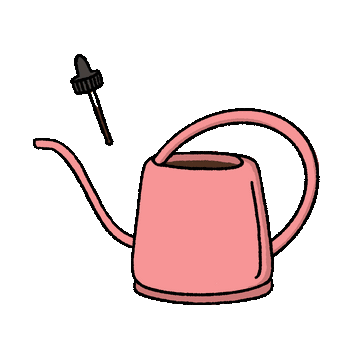Number one reason people don't get involved with indoor plants? Fear of pests*. While plants enhance the beauty of your home and have a profound impact on your mental and physical well-being, a common worry among many is the possibility of indoor plants attracting pests. While it's a valid concern, it's important to note that having indoor plants doesn't automatically mean dealing with a pest invasion. Nevertheless, creating a pest-free environment for your plants and home requires some effort and knowledge. Let's dive in and discover the secrets to maintaining a thriving and pest-free indoor garden!
*I completely made this up but it seems legit.
Do indoor plants attract pests?
Weeeeeellllll....Yes and no. Obviously, if you had no plants in the home, there would be no reason for mealy bug and aphid and scale and fungus gnats to come on in. So just by having plants in the home does add an element of risk. And certain plants are more likely to attract bugs than others. For example, succulents, spider plants, and bamboo are less prone to attract bugs. On the other hand, flowering plants or plants with softer leaves are more likely to attract pests. If you have a lot of indoor plants, and they aren't properly cared for, it's more likely to become a breeding ground for bugs, which can spread easily from one plant to another. However, this doesn't mean that you should avoid having plants altogether. With the right care techniques and products, there is no reason why having indoor plants should make your home a pest paradise.
How to keep pests away?
The best way to keep pests away is to take preventive measures. Number one is keep your plants happy! Happy, healthy plants are better placed to fend off pests. Other good moves include inspecting your plants regularly for any signs of infestation. Look for tiny white bugs, sticky residue, or holes in the leaves. Secondly, use a good quality soil mix that has been sterilized to kill any pests. Additionally, use a natural insecticide like Neem oil*, which is harmless to plants but effective in repelling bugs. Make sure you get your watering right too, too much brings on the gnats, too little and the plants will start to struggle and be ill-equipped for pest management.
What to do if your plants are already infested?
If despite your efforts, your plants have been infested, don't worry. The first thing you should do is isolate the infected plant from the rest of the healthy plants. Then, remove any dead leaves or stems and throw away any soil that seems contaminated. With a cloth soaked in neem, gently wipe the leaves of your plants. Be careful not to damage the leaves, as it can stress the plant and make it more vulnerable to pests. Also think about repotting with some fresh mix, depending on how bad things are.
Other benefits of indoor plants
Sure, plants at home might attract a few more pest than if you didn't have any plants, but don't forget about the benefits that come with having plants in the home! Apart from improving aesthetics and air quality, indoor plants have several other benefits that make them worth having. Plants can reduce stress, improve concentration and productivity, and boost your mood. Taking care of plants is also a great hobby that can help you unwind and improve your cognitive skills. So, if you were hesitant about getting indoor plants due to the fear of bugs, don't let that hold you back.



Leave a comment